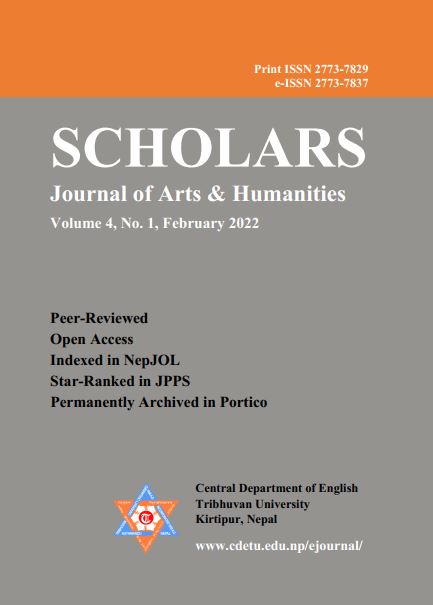Visual Images and Interpretations: A Semiotic Analysis of Textbook Covers
DOI:
https://doi.org/10.3126/sjah.v4i1.43051Keywords:
Textbooks, social semiotics, discourse analysis, gender, cultureAbstract
This article presents a comparative visual interpretation of the cover images of the selected textbooks. A social semiotic approach was used to analyse various compositional and thematic differences among two sets of textbook covers. The compositional interpretation was applied to explore the differences and similarities in an image composition and discourse analysis was used to explore their implied social discourses. The findings show some significant shift as well as continuum in the image composition and underlined social discourses. For example, the newly published textbooks focus on settings, character details and character connection, and use various colours in contrast to the old textbook covers. More activities promoting gender equality were found in the new textbook covers than in the old textbook covers. Overall, the new textbooks propose positive changes in their cover image composition in quality and gender discourses. However, the images only feature-specific religious symbols, regional culture and geography rather than multicultural, multiregional and multi-religious context of Nepali society. It seems that minority religion, ethnicity and regional variations that are found in Nepal are missing in the cover images across the curriculum. This article is expected to address the gap seen in the Nepali school educational research and helpful to provide insights that the cover images used in the textbooks are important and powerful meaning makers.
Downloads
Downloads
Published
Versions
- 2022-02-18 (2)
- 2022-02-13 (1)
How to Cite
Issue
Section
License
Copyright (c) 2022 Central Department of English, Tribhuvan University and Authors

This work is licensed under a Creative Commons Attribution 4.0 International License.
© Central Department of English, Tribhuvan University and Authors




